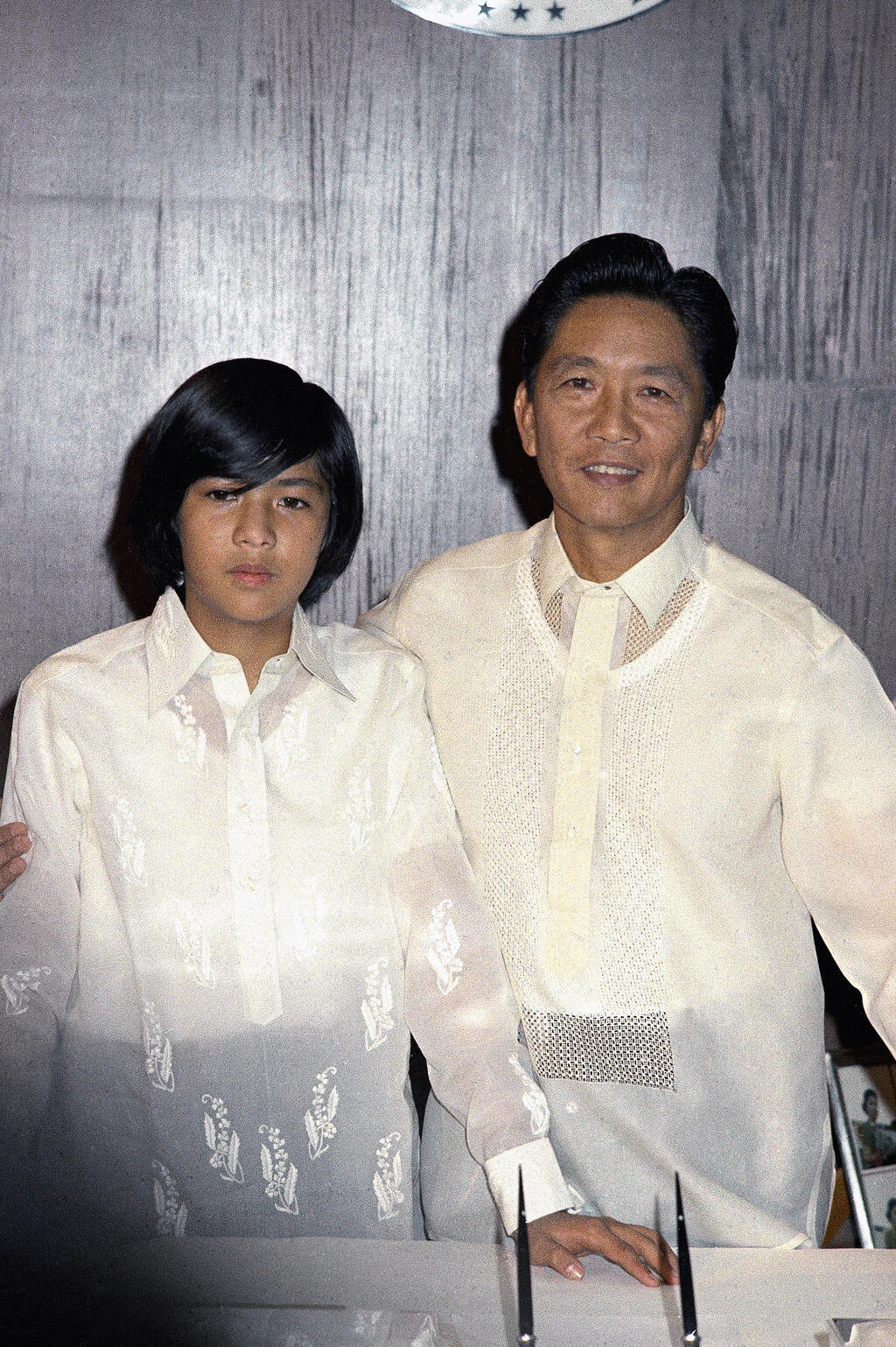Getting your Trinity Audio player ready...
When, on October 7, 2023, Hamas broke across the Israeli border to carry out massacres and kidnappings, Angelyn Aguirre, a 32-year-old Filipino caregiver, remained by side by side with the elderly woman she took care of in Kibbutz Kfar Aza, Nira Ronen, with whom she tried unsuccessfully to hide in the vault of the house, before they were both killed by the terrorists.
Aguirre, who had been married for just a year and had returned to Israel to work just a few days before the attack, is among 4 Filipino citizens who were killed by Hamas on October 7; two others were kidnapped and taken to Gaza, only to be released in November. There are about 30,000 Filipino workers living in Israel, mainly employed as caregivers and in the hotel sector. When, on August 9, the Israeli Embassy in the Philippines celebrated the 67th anniversary of relations between the two countries by planting trees in the courtyard of San Francisco High School in Quezon City, 4 trees were dedicated to each one of the victims.
Since that tragic day, current Philippine President Ferdinand Marcos Jr. has strongly sided with Israel, unambiguously condemning Hamas. The relationship between Manila and Jerusalem is also dictated by common interests in the defense sector; The Philippine Air Force has recently purchased long-range patrol aircrafts from the Israeli company Elbit Systems, due to recent tensions with China in the South China Sea. While Israel Shipyards Industries recently sold two patrol ships equipped with missile launchers to the Philippine Navy.
In order to better understand how relations between the two countries have evolved, we spoke with Filipino entrepreneur and economist Andrew James Masigan, a columnist for The Philippine Star daily newspaper and an advisor to the Middle East Media Research Institute (MEMRI).
What were the relations between the Philippines and Israel before October 7?
"Relations have always been good. Since the Philippines is, besides East Timor, the only predominantly Catholic nation in Asia, we have always felt that we have a connection with the Jewish people. In the 1930s, under the leadership of then-President Manuel Quezon, our country welcomed about 1,300 Jewish refugees fleeing Europe, when no other Asian country was willing to do so. Some of their descendants still live here. And when, in 1947, the Plan for the Partition of Palestine was put to a vote at the United Nations, the Philippines voted in favor of the birth of a Jewish State. The rest, as they say, is history; since 1957 we have had excellent diplomatic relations with Israel, which over time have turned into a real friendship."
How are Filipino politicians and public opinion aligned regarding the ongoing war?
"First of all, it is necessary to make a clarification; Since Israel is a geographically distant country, some sectors of the Filipino society are not really aware of the situation. Besides that, the Philippines is the only country in Southeast Asia to have openly declared its support for Israel. Not only politicians, but also society as a whole stands with Israel, and does not cultivate any feelings of hatred or anti-Jewish prejudice.
"Personally, I can testify to this solidarity with Israel also through my own experience; I have written several articles on the Israeli reaction after October 7 for the Philippine Star newspaper, one of the most widely read in the country, and every day I receive hundreds of emails from readers. Out of a hundred comments on my articles about Israel, I would say that only 4 or 5 are pro-Palestinian, while all the others are generally pro-Israel."
The Philippines is home to an important Muslim minority, particularly on the Mindanao island. How are they aligned on the subject compared to the Catholic majority?
"The Philippine archipelago is mainly composed of three main regions: the island of Luzon in the north, the Visayas Islands in the center, and Mindanao in the south. If Luzon and Visayas are predominantly Christian, in Mindanao the Muslim component is very present. And it is in Muslim areas that pro-Palestine demonstrations have taken place. But even there, it is not that much if compared to what can be seen in neighboring countries such as Malaysia and Indonesia, where anti-Jewish hatred and pro-Palestinian positions are evident. In the Philippines, Muslims are just 6% of the population, few compared to the 200 million Muslims in Indonesia, most of whom are lined up against Israel."
3 View gallery


Filipino ambassador to Israel, Pedro R. Laylo Jr. meeting Israeli President Isaac Herzog
(Photo: GPO)
In an analysis published in May on the MEMRI website, you argued that the Philippines is trying to oppose Chinese expansionism in the Pacific Ocean. How much does this factor impact military cooperation with Israel?
"The Philippines has military cooperation agreements only with a small number of countries. Israel opened its own military exchange office in Manila in 2020, and has expanded its diplomatic network; in addition to the Embassy in Manila, it has also opened two consulates in the Visayas and Mindanao regions.
"Israel has been a major supplier of arms and ammunition to us for a long time. In the last period, due to the Chinese threat, relations have strengthened; the Israeli company Elbit Systems has provided us with patrol aircrafts, but apart from that Israel provides us with guns, bullets, military suits and helmets. In addition, we also cooperate with them in military training."
In addition to defense and the armed forces, in what other areas do you have a fruitful collaboration?
"We have many programs for technology exchanges, the most profitable of which is in the agricultural sector: every year, we send between 300 and 400 Filipinos to Israel to study their innovations in agriculture and bring them here. In addition, there are several active joint ventures, whereby Filipino companies cooperate with Israeli companies in the agricultural sector.
"To give an example, thanks to the use of Israeli technologies, Metro Pacific Agro Ventures Inc., one of the largest conglomerates in the Philippines, is building what will be the largest dairy in the country and in all of Asia. It will be used to produce 6 million liters of milk per year, and the opening is scheduled for November. They have also invested one billion Philippine pesos (about 65.5 million shekels) to build a greenhouse where they can cultivate 1,600 tons of vegetables a year.
"Apart from agriculture, there are fruitful collaborations between Israel and the Philippines also in the IT sector, for the development of start-ups and new technologies. Overall, we have very good relations with Israel, although there are still areas for improvement."
What can be improved?
"Trade is not consistent for now, and even tourism between the two countries has not yet reached significant levels. Although, it must be said that negotiations are currently underway to implement tourist travel so that the Philippine Airlines can make direct flights to Tel Aviv and Jerusalem. Negotiations had stopped after 7 October, but have since resumed.
"In any case, when one of the two countries needs help, the other is there: to give an example, Mashav, the international agency for cooperation and development of the Israeli Ministry of Foreign Affairs, gives the Philippines the status of priority nation, the highest one. For this reason, there is cooperation in various areas between the two countries, for example when natural disasters occur: in these cases, Israel always sends us food aid, blood donations, professional doctors. And even during the Covid-19 pandemic, Israel allowed us to vaccinate tens of thousands of our compatriots."



